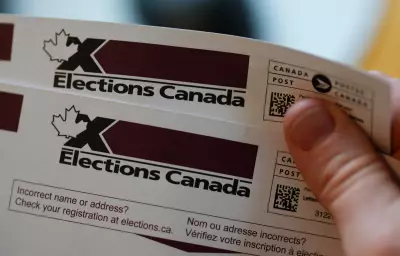
In a bold fiscal maneuver that's already sparking intense debate, the Canadian government has unveiled a budget that more than doubles the federal deficit while launching the most ambitious infrastructure spending program in recent memory.
Staggering Deficit Numbers Raise Eyebrows
The 2024 federal budget projects a deficit of $39.8 billion for the coming fiscal year—a dramatic increase from the $20 billion projection in last fall's economic statement. This represents one of the largest year-over-year deficit expansions in Canadian history, signaling a significant shift in the government's fiscal strategy.
Finance Minister Chrystia Freeland defended the spending plan, emphasizing that targeted investments in critical areas will drive long-term economic growth despite the short-term fiscal impact.
Massive Infrastructure Injection
The budget's centerpiece is an enormous $6 billion infrastructure fund specifically designed to support housing-related projects. This unprecedented investment aims to address Canada's escalating housing crisis by funding:
- Critical water, wastewater, and stormwater infrastructure
- Transportation networks supporting new housing developments
- Community infrastructure essential for growing neighborhoods
- Energy grid expansions to accommodate new residential areas
This infrastructure push represents the government's most direct intervention in the housing market to date, acknowledging that the shortage of supporting infrastructure has become a major bottleneck in addressing the national housing shortage.
Housing Crisis Takes Center Stage
Beyond the infrastructure fund, the budget contains several housing-focused initiatives, including:
- Accelerated construction programs for affordable rental units
- Municipal incentives for communities that exceed housing targets
- First-time homebuyer support through extended amortization periods
- Indigenous housing strategies with dedicated funding streams
Tax Increases Target Wealthiest Canadians
To help fund these ambitious programs, the government is implementing significant tax changes, primarily affecting high-income earners and corporations:
- Capital gains inclusion rate increase from 50% to 67% for gains over $250,000
- Wealthiest 0.13% of Canadians expected to bear the brunt of new tax measures
- Corporate tax adjustments targeting certain financial institutions
Finance officials estimate these measures will generate nearly $20 billion in additional revenue over the next five years, partially offsetting the massive new spending commitments.
Economic Outlook and Political Implications
The budget arrives amid growing economic uncertainty and increasing pressure on the Liberal government to demonstrate fiscal responsibility while addressing pressing social issues. Opposition parties have already criticized the deficit numbers as irresponsible, while housing advocates have praised the infrastructure focus.
Economic projections within the budget suggest moderate growth of 1.7% in 2025, with the government banking on its infrastructure investments to stimulate economic activity and improve Canada's long-term competitiveness.
This budget represents a calculated gamble—betting that massive infrastructure spending today will pay dividends in future economic growth, even as it pushes the country deeper into deficit territory.





